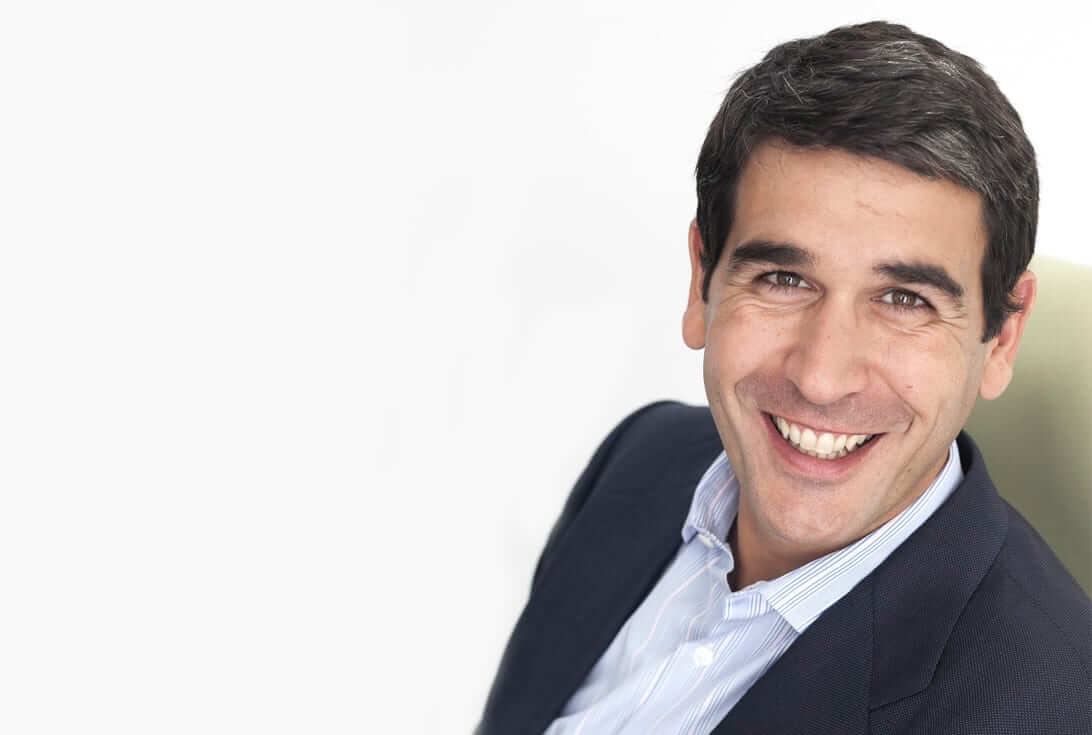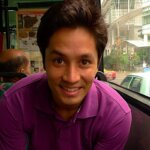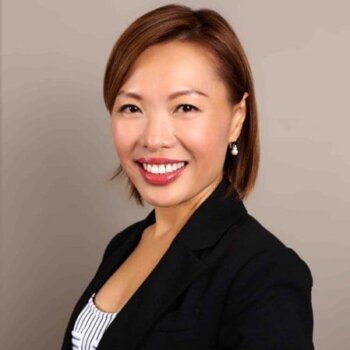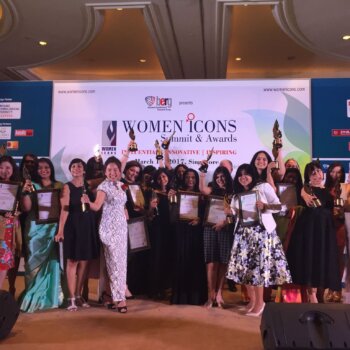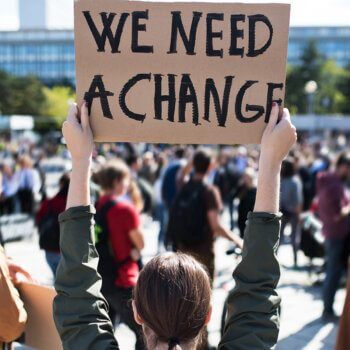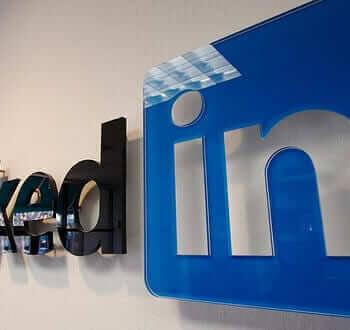Find out how this entrepreneur harnesses disruptive technologies and can help solve your information access problems with a Virtual Assistant…
What’s your story?
I moved to Austria in 2002, after the burst of the .com bubble, to complete a PhD in Artificial Intelligence. After my studies I worked for a software vendor that we took public and completed the acquisition of a target with moneys raised. Upon completing that project, I decided to take the research I had done during my PhD and build Taiger from a cow farm in the Austrian Alps. Today we are present in 4 countries, solve some pretty hard information access problems applying AI and have top-notch customers such as Sony DADC, Grupo Santander, BBVA or HDB in Singapore.
What excites you most about your industry?
The tangible life changing aspect of what we do. IT has grown to be present in all aspects of our daily life, from professional to personal aspects. The field and the technology, both in terms of hardware and software, are still in its infancy. Yet in this short period of time it has come a long way. I am excited to see what the future will bring, particularly taking into consideration that every major breakthrough is happening at shorter time intervals than before and they all help to develop the next one. I think we are not far from seeing really intelligent software do things for us that until now we could only dream of. Contributing to the development of these life changing technologies is what excites me.
What’s your connection to Asia?
My girlfriend is Vietnamese, my business is growing fast in Singapore where we intend to establish our regional headquarters and I love this part of the world where there is so much opportunity for growth.
Favourite city in Asia for business and why?
While I only know a portion of the key Asian business cities, I have to admit that Singapore is my favorite business destination in Asia without any doubt. It is efficient, well organized, driven, precise and down to earth. Decision makers embrace disruptive technology and are not afraid to try new things, which makes it ideal to nurture innovation and fast change.
In addition to that, the government’s support and determination to build a global business hub are admirable. This favors the overall business climate and the establishment of regional and global headquarters in the city. Also the strong focus on advancing all IT aspects and profiting from what technologies have to offer in all fields is remarkable. Not to mention the support offered to young and start-up businesses.
At the human level the city is accommodating to the foreigner. Having lived in three continents now, I can say that getting settled is easy and does not require complex administrative procedures. Everything from getting a mobile phone to sorting out utilities can be done easily and staff are attentive and willing to assist.
What’s the best piece of advice you ever received?
To be successful one needs, aptitude, attitude and luck. Without any of the three it is hard to attain your goals. I fully agree with this and would add that hard work is also important. With hard work eventually one creates the necessary circumstances to be successful.
Also a good friend and founder of a number of businesses once told me, that building a firm is like running a marathon at a 100 meter pace. I have to admit the wisdom in it, particularly in the earliest phases where resources are scarce and key staff members need to wear several hats.
Who inspires you?
Many people. I look up to professional athletes and successful business people alike. Overall I admire and get inspiration from people that set a life goal and are tenacious enough to pursue it and achieve it. Those that live their lives to the fullest according to their beliefs, and who are not afraid of departing from the norm to make a difference.
I admire the life philosophy of extreme skier and philosopher Andreas Franson, the physical ability of mountain runner Kilian Jornet, or the unassuming and hardworking attitude of 5-time Ironman World-Champion Craig Alexander. In business I truly admire Hana Dang, who is one of the most successful entrepreneurs in Vietnam, building her success against great personal and professional odds, out of nothing, in an impoverished country. Or, Le Hoang Lan who after completing her MD degree went on to work for Prudential and ended up building the business in Vietnam from zero to several thousand employees, then reinventing herself as serial entrepreneur. Or, Travis Kalanick, Uber founder, by the simple and effective way his company is changing for the better. Something as obvious and important as the way we move around cities, creating tons of value for its users across the world.
What have you just learnt recently that blew you away?
One thing that I found particularly interesting is that disruptive innovations and technologies that have a deep impact on our lives occur at much shorter intervals now than before. Take writing, then print, then telephone, then production chains, then space travel, then the internet, then solar panels, then 4d printing, then driverless cars, etc. The time gap between one and the next is getting shorter and shorter. The fact is, each one contributes to bring on the next. This increasing innovation creates virtuous cycles, posing the question of how far technology can go, and whether we would be able to really control it. Recently, The Economist ran an article on AI where Stephen Hawking, Elon Musk, Bill Gates and other relevant visionaries and academics listed “the development of artificial intelligence, as be the biggest existential threat humanity faces.” If we look back and see how computing power and software have evolved in the last 30 years, both industries still being in their infancy, what the future holds could either be amazing, if we harness it, or scary.
If you had your time again, what would you do differently?
Building a business is a learning process and no matter how much experience you have, I think one always makes mistakes and would have liked to do things in a different way. When we started Taiger we relied heavily on public funding sources. If I had to do it all over again I would probably have sought VC funds earlier. Building an enterprise-grade solution requires heavy funding and often the timing of public sources, at least in Europe, is not necessarily aligned with firms’ needs. Also, moving out of Austria earlier would have been advisable. The administrative overhead there one needs to see to believe, plus being a foreigner always played against us since their society is very closed and conservative.
How do you unwind?
I love to practice outdoor sports. Lately I am caught up with ironman. Having to do some sport everyday helps me release work tension and gives me balance in my personal life. It also helps me eat healthier and be more energetic. Before, when I lived in Austria, I did a lot of skiing and mountaineering. I climbed Mt. Blanc, Cotopaxi and Chimborazo among others. Going to the mountains helped me clear my head and be back on Monday with a positive attitude and focused mind. I also enjoy scuba diving, sailing and I am working on getting my airplane pilot’s license.
Favourite Asian destination for relaxation? Why?
I am still discovering Asia. From what I know, I love Vietnam and Thailand for relaxation. Phuket is a fantastic place to enjoy food and relax at the beach. Da Nang in Vietnam has some of the most spectacular beaches I have seen in my life, and the seafood is pretty amazing too. On weekends I travel to Saigon and catch up with friends and family. A very fun place to party, full of interesting places to eat, drink or simply enjoy. I love the harmonic chaos of the city traffic and positive vibes of the people. And of course, the fresh coconut, my favorite drink.
Everyone in business should read this book:
Blink by Malcolm Gladwell, is an excellent example on behavioral economics explaining the strengths and pitfalls of the unconscious and how they apply to business.
The Goal by Eliyahu M. Goldratt, an excellent view on how operations should be managed and the bottlenecks it must overcome.
The Undercover Economist by Tim Harford, a very interesting introduction to economics, economic thinking and decision-making.
Shameless plug for your business:
Taiger is software vendor specialized in applying AI to hard information access problems. Our Virtual Assistant is used at contact centers replacing humans to solve users’ enquires. It gives the feeling of a human being at the other end of the loop, being able to interact both in written and oral communication. We also commercialize an enterprise-grade search engine that overcomes the limitations of traditional keyword-based search engines in corporate environments. All our products and solutions revolve around the application of Natural Language Processing and semantic technology, fields where we count on world-class experts and a number of patents.
How can people connect with you?
All my contact details are in LinkedIn. Best is to drop me an email, I tend to travel at least once per quarter to Europe and the US to check on the business, so chances are my local Asian cell phone is off. My email is: [email protected].
Twitter handle?
@Taiger_CO
—
This interview was part of the Callum Connect’s column found on The Asian Entrepreneur:
Callum Laing invests and buys small businesses in a range of industries around Asia. He has previously started, built and sold half a dozen businesses and is the founder & owner of Fitness-Buffet a company delivering employee wellness solutions in 12 countries. He is a Director of, amongst others, Key Person of Influence. A 40 week training program for business owners and executives.
Take the ‘Key Person of Influence’ scorecard <http://www.keypersonofinfluence.com/scorecard/>
Connect with Callum here:
twitter.com/laingcallum
linkedin.com/in/callumlaing
Get his free ‘Asia Snapshot’ report from www.callumlaing.com
